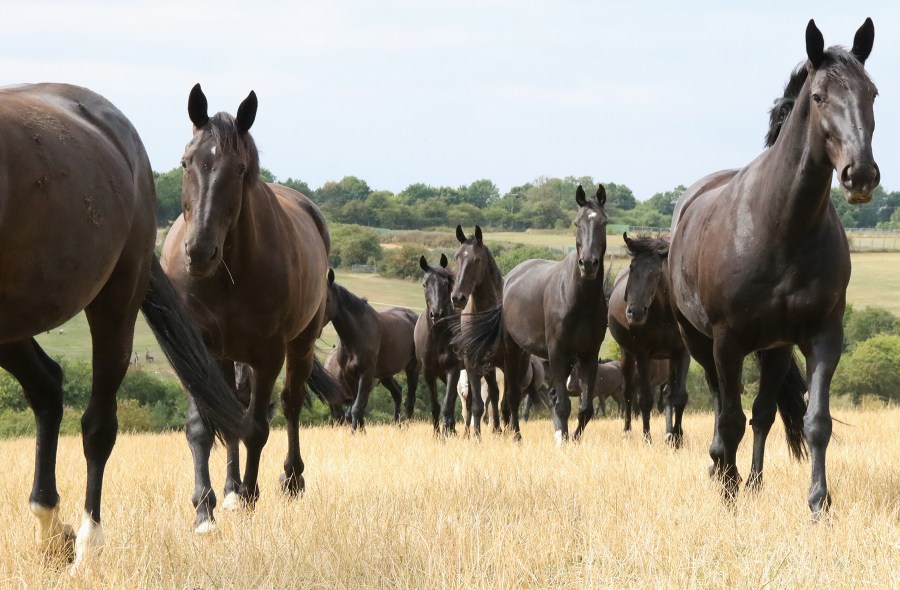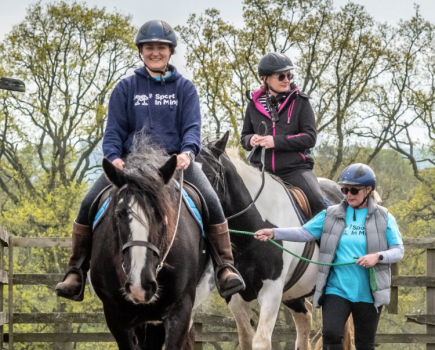The Household Cavalry horses have swapped the streets of London for the wide-open fields of the Leicestershire countryside as they enjoy a six-week holiday.
Some 120 horses from the mounted regiment are taking a well-deserved break from their ceremonial duties at the Defence Animal Training Regiment (DATR). These horses have been on parade for some of this year’s most high-profile events including Her Majesty The Queen’s Jubilee.
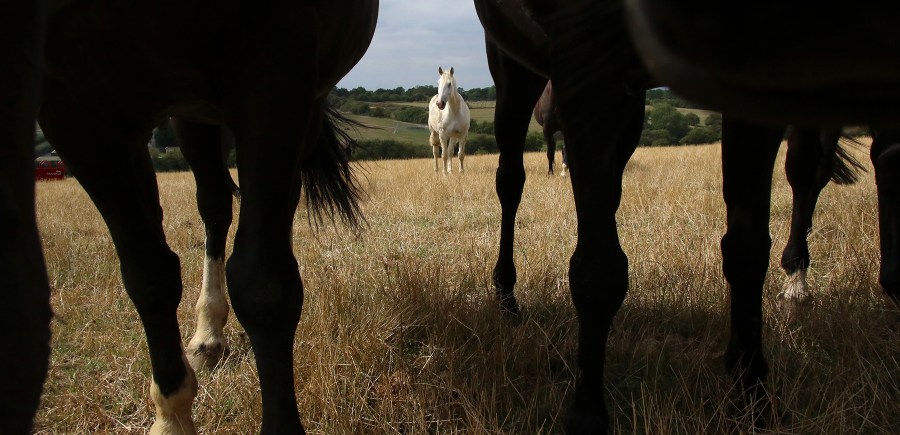
Garry Fox/ MOD Crown Copyright
“Just like soldiers each horse needs to be physically and mentally fit for its role,” said Riding Master, CaptScholes, Royal Horse Guards and Kings 1st Dragoons (RHGD), HCMR. “The long rest at the DATR replenishes their energy and helps increase motivation and enthusiasm, meaning they are less fatigued and more settled when they return to ceremonial duties.”
The annual stay at the DATR is just one of many planned breaks from ceremonial duties for the military horses throughout the year.
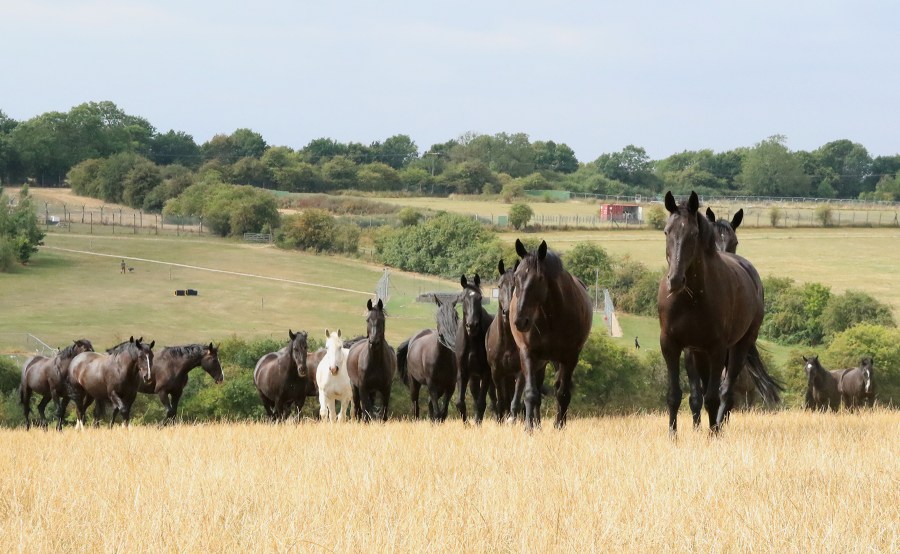
Garry Fox/ MOD Crown Copyright
Among them are horses and riders from the King’s Troop Royal Horse Artillery, renowned for their Musical Drive performance. They are regular visitors to the DATR where they enjoy a range of activities including showjumping, hacking and cross-country riding as part of a week of equestrian training.
Captain Brooks, Kings Troop Royal Horse Artillery, said: “The break at the DATR is always fun for both the horses and the troops, and it helps to strengthen the trust and confidence between the horse and rider, so vital when performing ceremonial duties in London.”
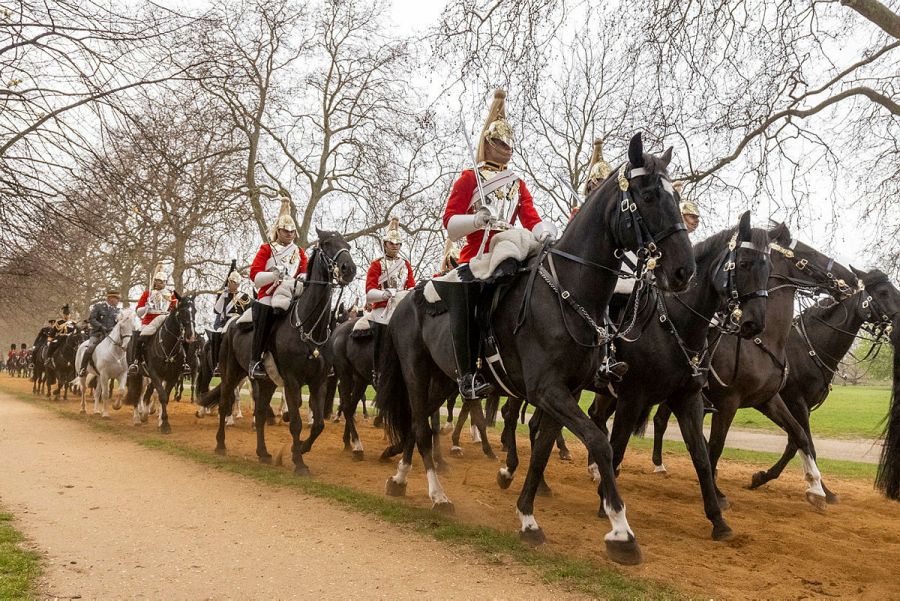
The DATR is not the only holiday venue for the military horses. The North Norfolk coast is the setting for an annual two-week training camp based at Bodney camp. It includes three days on Holkham beach and whilst it is enjoyable, it is also designed to build trust between the horse and rider.
“The beach ride is the highlight of the camp,” said Capt Lane-Fox RGHD, HCMR. “Being based in the city, the beach is a great environment for the horses. It can be a little unnerving for them when they go in the sea, so they have to put their trust in the rider. It’s also a real test for the soldiers who ride bareback. They must engender confidence in their horse at the same time as maintaining control.”
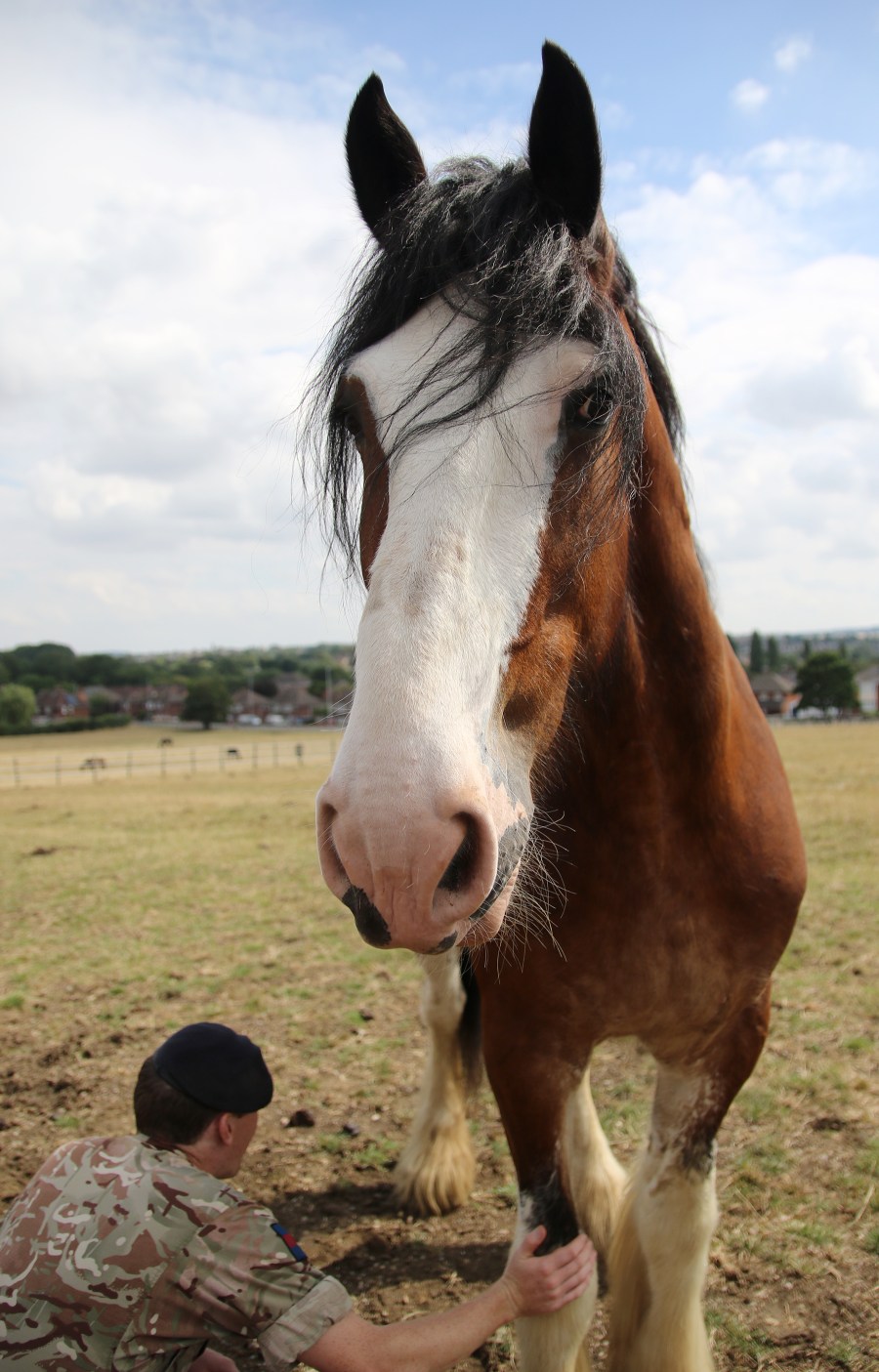
A handsome Drum Horse enjoys some downtime. Garry Fox/ MOD Crown Copyright
During the camp, the Cavalrymen and women develop their advanced riding techniques and take part in cross-country riding and showjumping, which builds a stronger more capable rider for duties on Parade.
A support team including veterinary officers, vet technicians and farriers will ensure the horses have the best care and treatment while at home and away.
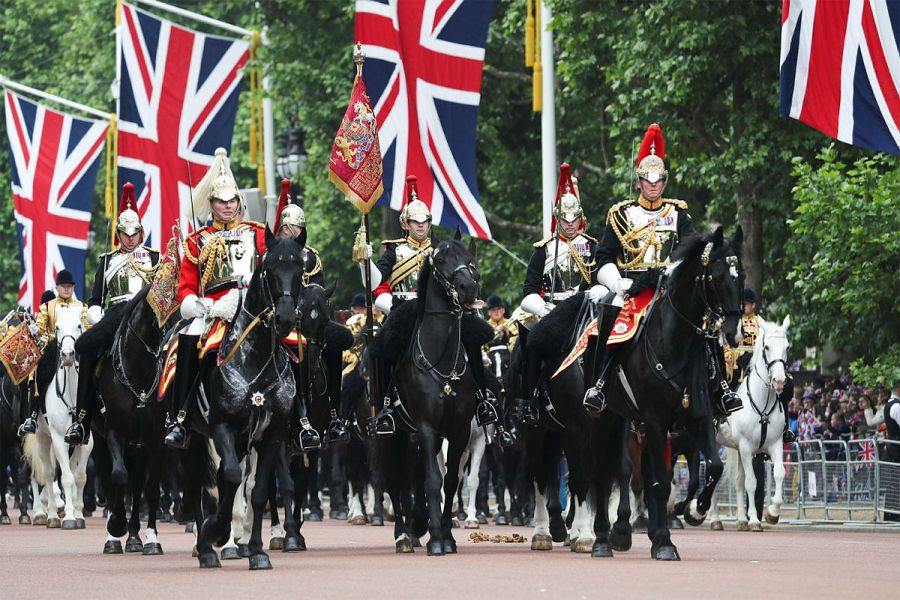
Veterinary Officer Major Curnick LG said: “What the public doesn’t see is all the work behind the scenes before each parade. The welfare and health of all of our military animals always comes first. They are well fed, well looked after and provided with excellent veterinary care.
“Each soldier knows their horse better than anyone. They have hands-on contact every day and are quick to notice if anything is amiss. Some of our horses work until they are over 20 years of age and that is a testament to the care we provide.”

